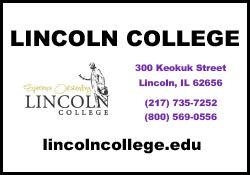|
 Novartis's Sandoz unit said its copy of Roche blockbuster Rituxan --
used to treat blood cancers and certain immunological diseases --
had received a so-called complete response letter from the U.S. Food
and Drug Administration (FDA). Novartis's Sandoz unit said its copy of Roche blockbuster Rituxan --
used to treat blood cancers and certain immunological diseases --
had received a so-called complete response letter from the U.S. Food
and Drug Administration (FDA).
The FDA issues such letters when it is not ready to approve a
product.
The news follows a similar setback for another biosimilar copy of
Rituxan from Celltrion and its partner Teva. Together, the two
delays win Roche extra breathing space in the crucial U.S. market.
Roche shares rose nearly 2 percent by 0840 GMT while Novartis stock
was little changed.
Deutsche Bank analyst Tim Race said Rituxan could now remain free
from biosimilar competitors in the United States this year, with
erosion threatening only from 2019.
Rituxan generates about $4 billion of U.S. sales for Roche.
Race said he had been expecting a sales loss to biosimilars of about
$150 million in 2018 and Roche earnings would be around 0.5 percent
higher if this was removed.
For 2019 Race assumes a $1 billion fall in U.S. Rituxan sales versus
2017, so if biosimilars enter from mid-2019 there could be an
earnings uplift of about 2 percent.
Sandoz said it was evaluating the FDA letter and it stood behind the
"robust" evidence included in the regulatory submission for its
biosimilar.

[to top of second column] |

"While disappointed, Sandoz remains committed to further discussions
with the FDA to bring this important medicine to U.S. patients as
soon as possible," it said.
The problems facing Rituxan biosimilars in the United States are in
sharp contrast to the situation in Europe, where copies of the drug
from both Celltrion and Novartis are already available and uptake of
the cut-price medicine is hurting Roche.
Rituxan sales plunged by 44 percent in Europe in the first quarter
of 2018.

The tussles in the biosimilars market are a growing focus for
investors, with soaring valuations for some pioneers in the field,
such as South Korea's Celltrion, and worries about the long-term
sales threat to makers of original drugs, such as Roche and AbbVie.
Overall, U.S. regulators have lagged behind Europe in approving
biosimilars, while a complex system of rebates offered to insurers
by original-brand drugmakers has also created barriers to use.
Biological drugs such as Rituxan are complex molecules made inside
living cells, which means that rivals seeking to make copies when
patents expire can only ever produce medicines that are similar to
the original rather than identical.
($1 = 0.9966 Swiss francs)
(Editing by David Goodman)
[© 2018 Thomson Reuters. All rights
reserved.] Copyright 2018 Reuters. All rights reserved. This material may not be published,
broadcast, rewritten or redistributed.
Thompson Reuters is solely responsible for this content. |